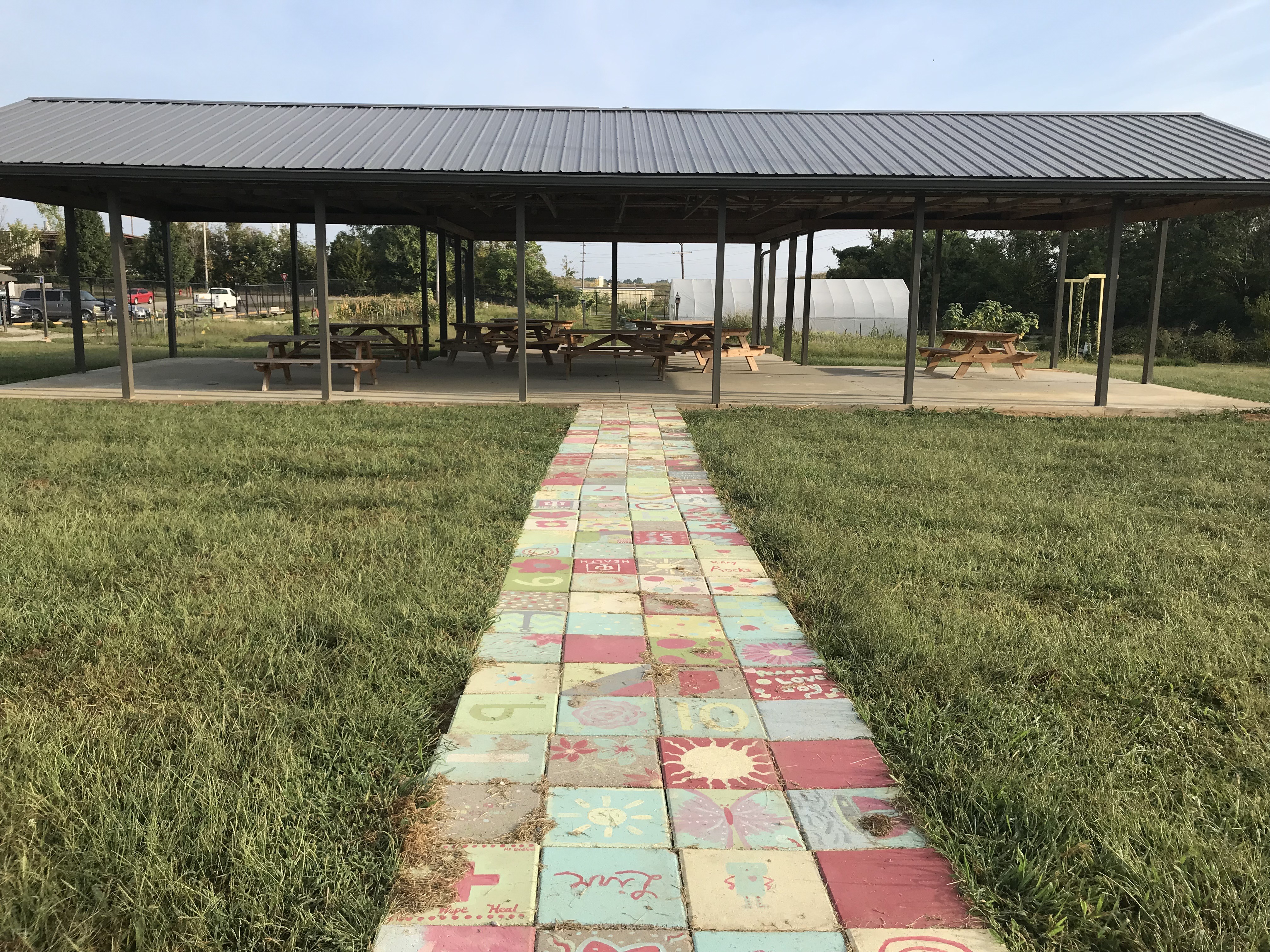
Chelsea Schneider, Innovations Content Manager, Aim
In one Bedford city park, visitors can plant flowers and vegetables, pick berries from shared bushes and take part in a growing trend of cities and towns creating community gardens from public greenspace.
The uses of Bedford’s Garden Park are as unique as the gardeners who have turned the space into a one-of-a-kind destination. From garden beds to a honey bee apiary and a new greenhouse, the city’s Parks and Recreation Department has transformed a long-time vacant property into a place for community members to cultivate the land together.
Community-based gardens are popping up in cities and towns across Indiana as a way to build stronger ties among an area’s residents and where they live. Like Bedford, Mishawaka is in the process of opening a greenhouse and community garden to educate local high school students. Richmond is partnering with a nonprofit in planning a community fruit orchard to help address a food desert in the city.
“It can be a great opportunity for stress relief and community building for people to reconnect by growing their own food,” said Nathan Shoaf, an urban agriculture state coordinator with Purdue Extension. “That’s something that a majority of people did at one point in life, a couple generations previously.”
In Bedford, the city built the garden on land gifted to them from the Bedford Urban Enterprise Association. The organization had purchased the property years ago hoping to locate a company to support a nearby General Motors plant. However, the property sat vacant.
To revitalize the space, city leaders organized a group of community stakeholders to put together a crowdfunding proposal through the state’s CreatINg Places program. The program by the Indiana Housing and Community Development Authority allows cities and towns to crowdfund for projects through community donations and receive a matching grant from the state if the fundraising goal is met. Bedford surpassed its crowdfunding goal, and Garden Park soon became a reality with the first gardens planted in 2017.
“Really the concept of the entire park, it’s not so much about growing produce as much as it is appreciating greenspace, health and wellness and social responsibility as well as social engagement,” said Barry Jeskewich, the city’s park director. “It has brought a lot of people together. I’ve seen people meet up there and tend to gardens.”
The Garden Park offers more than 60 plots that people can rent. Not one demographic uses the space, Jeskewich said. Some people may live in an apartment and use the park because they really enjoy planting but don’t have the greenspace at home. Some of the gardeners could be farmers who live on acreage but like the concept of having a small garden in town as well to grow different produce.
Master gardeners have held classes at Garden Park, and community members can join a tool-share program.
All plots are free and on a first-come, first-serve basis, with current gardeners having the right of first refusal on their same bed when gardening picks up following winter. Right now the garden is at full capacity, with people growing everything from cucumbers, tomatoes, a variety of peppers and corn. Most people who use Garden Park tend their crops for personal consumption, but a few groups grow food for donations to local community shelters.
“The biggest benefit I see is the way the community has come together to embrace this project and really taken ownership for a select piece of property within the city of Bedford,” Jeskewich said. “It has given people a sense of pride for Bedford and given people the opportunity to have another park to explore greenspace and be active.”
In Mishawaka, the idea for a greenhouse came from the need to expand space for a gardening class at a local high school. Like Bedford, the city turned to crowdfunding to raise funds for its greenhouse and accompanying community garden.
The class used to meet in a makeshift storage room at the high school, which they shared with the science department. The plan is to officially open the new greenhouse this fall.
The project will be maintained by the city’s parks department and allow students to showcase different plants and produce. Students will grow items to take home and for use by the city. The former space allowed students to plant about 14 flats of flowers at a time. With the new greenhouse, they could do upward of 400 flats. The city is installing raised garden beds where they’ll plant vegetables for community members, with any unused produce going to the farmers market.
“People appreciate the effort the city is putting forward to better its community and better its attributes for the rest of the city,” said Jake Crawford, landscape manager and urban forester for the Mishawaka Parks and Recreation Department. “People have been really excited about this project because it impacts so many groups. It just hits a lot of different check boxes for great community partnerships.”
Richmond is partnering with a nonprofit, Wood Block Press, to crowdfund with the goal of planting a community fruit orchard at a city park. The project is centered around education on how an orchard is created, maintained and harvested. What’s more, the orchard will help address a food desert in the city by offering nutritious food in an area where offerings are scarce.
By placing a public-access orchard in the heart of the city, community members will have a greater idea of where their food is sourced, said Denise Retz, the Richmond parks superintendent.
“These efforts will really showcase to the community this is where our food comes from. This is how it’s grown and produced,” Retz said. “That really farm-to-table kind of feel.”
